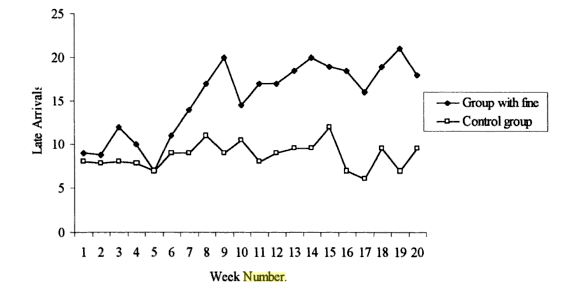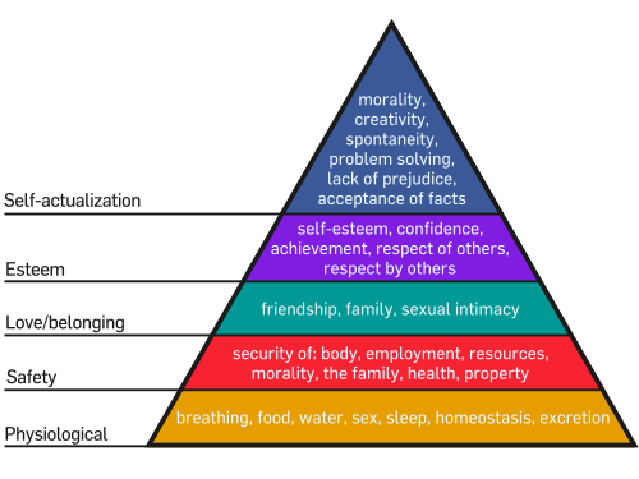What is motivator of Cognitive Surplus
Myung Joong KIM
RSM, Erasmus University, FT MBA 2012
In many business situations, money is the most important resource to bring change, invention or success in management. This is the point that many small companies and Non-for-profit organizations struggle to overcome, but not easily don’t. However if every single successful story has big budget which supported it, every chance to success would be focus to the Fortune 100, but is not. Also we are very familiar with success story of Wikipedia, Linux or Firefox, which are not supported by big company money rather than are supported by anonymous contributions. I insist now it is time to think about cognitive surplus and to motivate it with what.
According to a definition in Urbandictionary.com[1], “Cognitive Surplus” is “A word coined by former Silicon Alley Reporter columnist Clay Shirky to describe the free time that people have on their hands to engage in collaborative activities, specially as applies to web 2.0.”
Clay Shirky says Americans watch roughly 200 billion hours of TV every year, which are represents about 2,000 Wikipedia projects’ worth of time annually. (Shirky, 2010[2]) In some how this huge cognitive surplus is moving to change and influence the world. Shriky’s opinion is this behaviors are based on generosity that created by social constrains rather than contractual constraints did.(Shriky, 2010[3]) The graph below explains influencing of change fines for late-coming parents in Kindergarten.

Average number of late-coming parents. Per week ([4] Gneezy and Rustichini 2000)
With this point of view, Daniel Pink, who is the author of Drive : The surprising truth About What Motivates Us., stays in the line with Shriky. As the rich world is in the middle of management revolution from “motivation 2.0” to “motivation 3.0”, Pink insist that our motivation is getting closer to intrinsic motivators than to extrinsic ones.(The Economist, 2010[5])
With this new aspect of motivation, many business leaders should change their compensation system. But Shriky and Pink’s arguments are depends on highly selective reading of the academic literature. Four reviews of research on the subject from 1980s onwards have all come to the same conclusion: that pay-for-performance can increase productivity dramatically. A study of an American glass-installation company, for example, found that shifting from salaries to individual incentives increased productivity by 44%. More recent research on workers at a Chinese electronics factory also confirms that performance-related pay, especially the threat of losing income is an excellent motivator. (The Economist, 2010[6]) In the given examples, however, we need to focus 2 points. The case that researched about a glass company in USA was in the 1980s and the most motivator in Chinese factory was losing income, not rising income. In my point of view, extrinsic motivator mostly activates in material abundance culture or organization that is higher than 3rd stage, love and belonging, in the Maslow’s hierarchy of needs. Pink also point out “This material abundance has, paradoxically, placed a new premium on the non-material”(Pink, 2008)[7]

An interpretation of Maslow’s hierarchy of needs (Wikipedia, 2010[8])
Finally, to tap the covered talents, which is Cognitive Surplus, is start with realizing what stage we are on. To impact every people in the each stage, we have to think about how we can deal with intrinsic and extrinsic motivators at the same time. Like Pink said the “Six senses”(Pink, 2008[9]) – design, story, symphony, empathy, play and meaning – can work as motivator for people in developed country, but they might be too emotional way for ones in developing country. As next step of this study, I would like to bring the Network Management of Dr. Karen, especially “Trust”.
Reference to
[1] Accessed http://www.urbandictionary.com/define.php?term=cognitive%20surplus, January 14 2011
2 Shirky, Clay 2010. Tapping the Cognitive Surplus. The Futurist, November-December:21-22
3 Accessed http://www.ted.com/talks/clay_shirky_how_cognitive_surplus_will_change_the_world.html,
TED@cannes, posted Jun 2010
4 http://www.ted.com/talks/clay_shirky_how_cognitive_surplus_will_change_the_world.html, TED@cannes, posted Jun 2010
5 Anonymous. Business: Driven to distraction; Schumpeter The Economist. London: Jan 16, 2010. Vol.394; pg.66
6 Anonymous. Business: Driven to distraction; Schumpeter The Economist. London: Jan 16, 2010. Vol.394; pg.66
7 Daniel Pink, Do the right thing, Peoplemanagement.co.uk, Apr 3, 2008
8 Accessed http://en.wikipedia.org/wiki/Maslow%27s_hierarchy_of_needs, January 2011
9 Daniel Pink, Do the right thing, Peoplemanagement.co.uk, Apr 3, 2008
[1] http://www.urbandictionary.com, January 14 2011
[2] Shirky, Clay 2010. Tapping the Cognitive Surplus. The Futurist, November-December:21-22
[3] http://www.ted.com/talks/clay_shirky_how_cognitive_surplus_will_change_the_world.html, TED@cannes, posted Jun 2010
[4] http://www.ted.com/talks/clay_shirky_how_cognitive_surplus_will_change_the_world.html, TED@cannes, posted Jun 2010
[5] Anonymous. Business: Driven to distraction; Schumpeter The Economist. London: Jan 16, 2010. Vol.394; pg.66
[6] Anonymous. Business: Driven to distraction; Schumpeter The Economist. London: Jan 16, 2010. Vol.394; pg.66
[7] Daniel Pink, Do the right thing, Peoplemanagement.co.uk, Apr 3, 2008
[8] Accessed http://en.wikipedia.org/wiki/Maslow%27s_hierarchy_of_needs, January 2011
[9] Daniel Pink, Do the right thing, Peoplemanagement.co.uk, Apr 3, 2008
